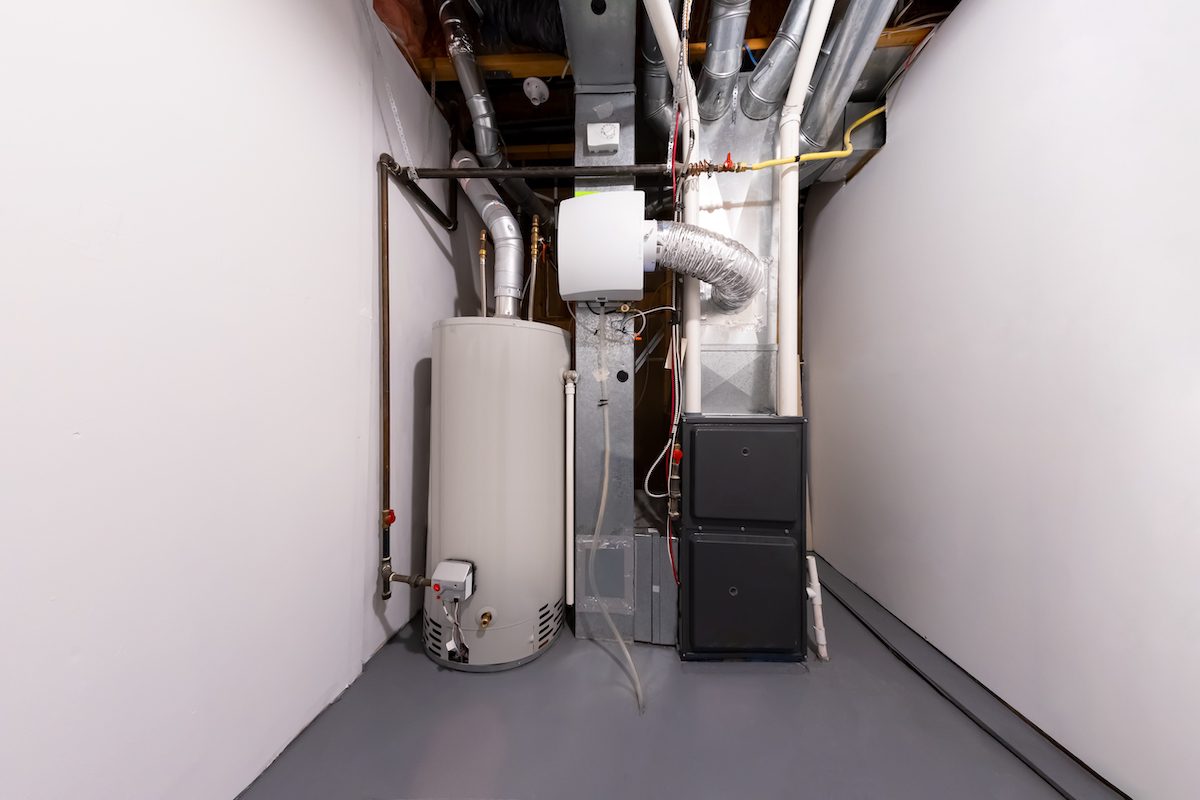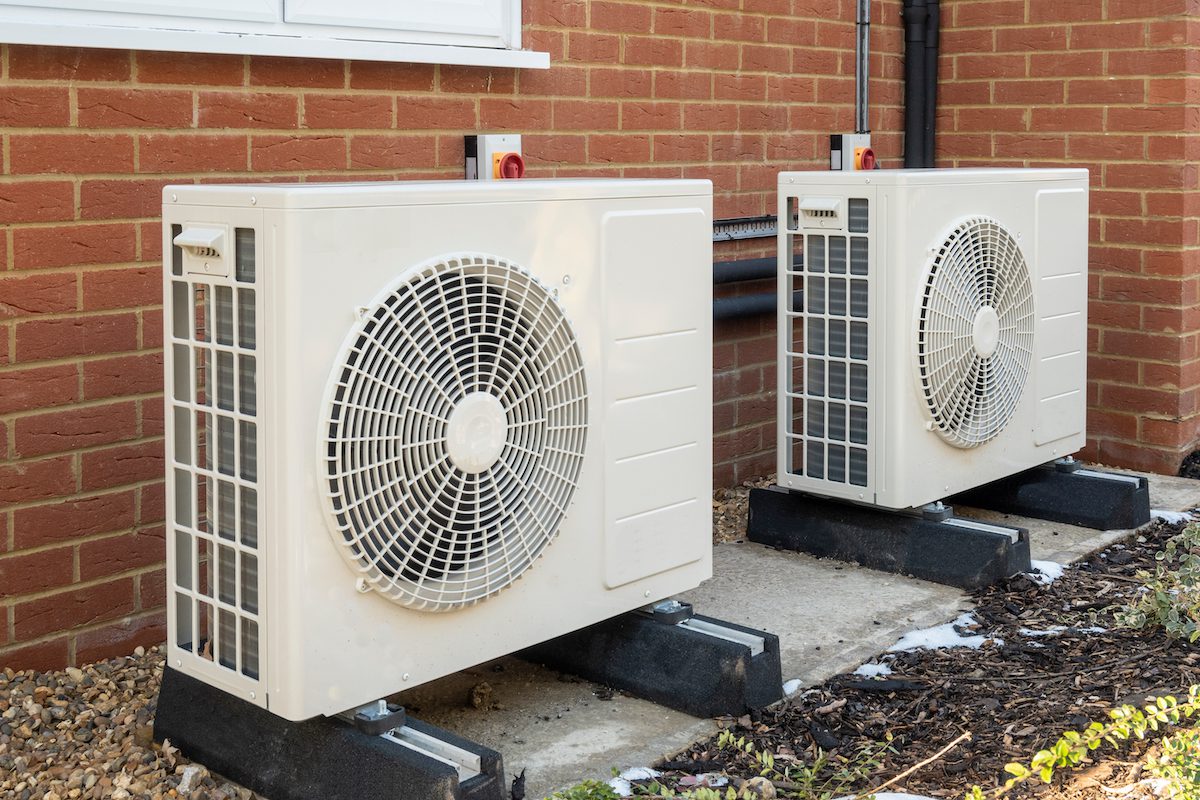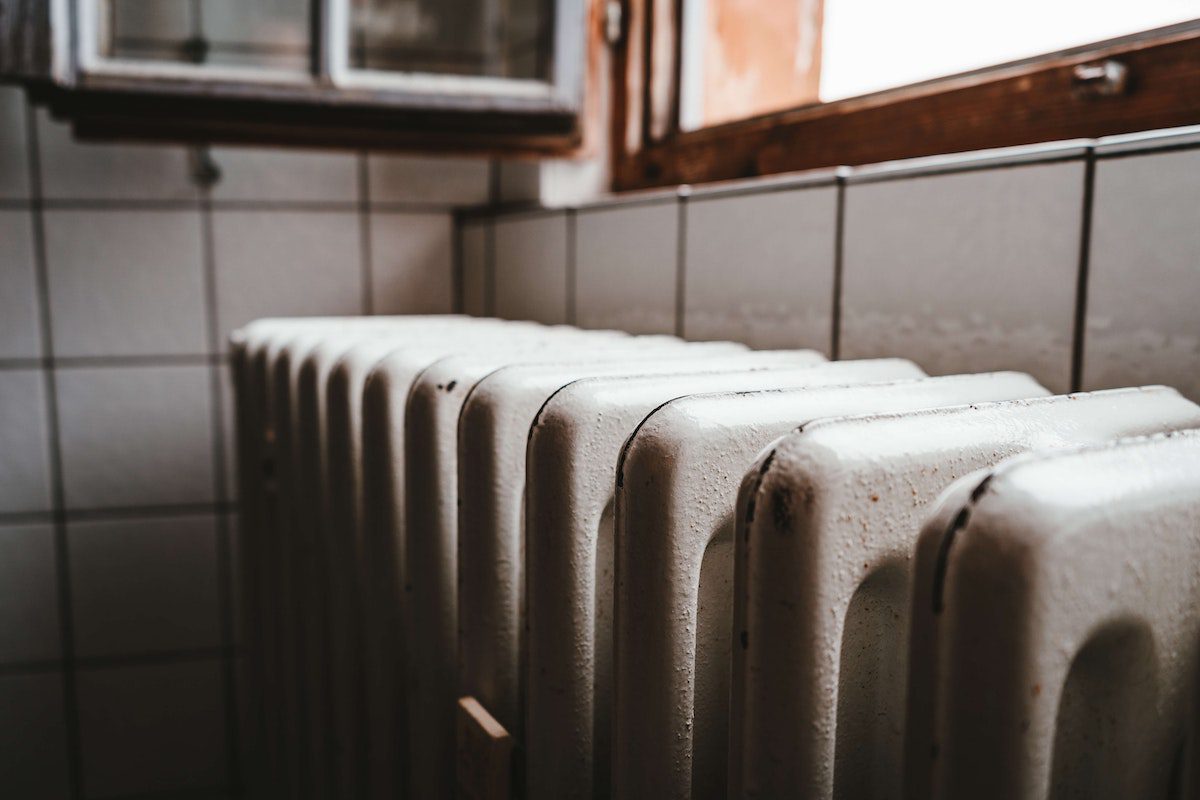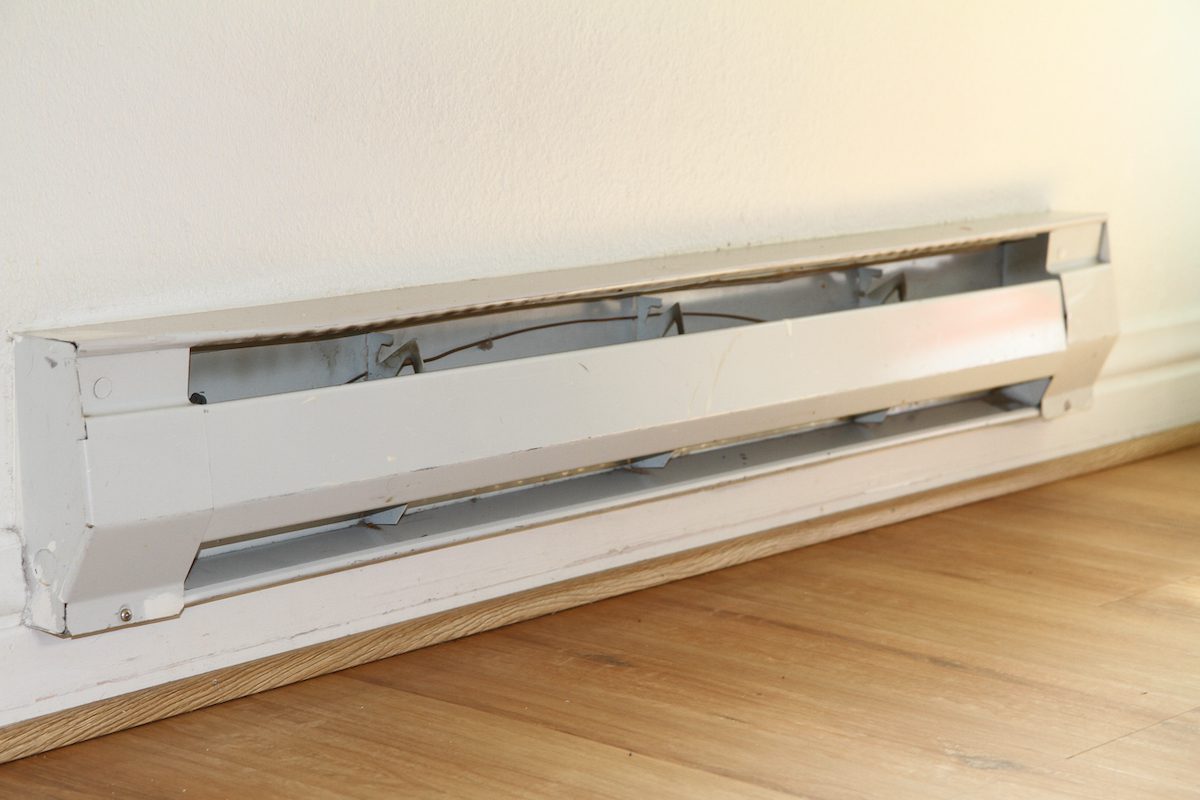Pros and Cons of Different Types of Home Heating Systems in a Rental Home
Winter is coming. No matter where you live or how big your house is, having the right home heating system is essential. You want warm rooms, but without high heating bills, so efficiency is also key.

When looking around for a home to rent, is it important to check on the type of heating system it has? Definitely. Should you know a little about the different types of home heating systems to pick the right one? For sure.
Different types of home heating systems
There are more styles of home heating systems than you'd think. Most run on either electricity, natural gas, propane or oil. Not all work well in extreme cold and not all do a great job of heating the entire house.
Breaking down the positives and negatives of each type of home heating system can help you find the one that will work best for you.
Furnace

Furnaces are the most common type of home heating system you'll find when looking at rental homes. They use a heat exchanger to warm air, which is then pushed throughout a home by a fan through a duct system. The same ductwork your furnace pumps heat through in the winter will also typically distribute cool air in the summer. Having your heater and air conditioner work the same way means only one series of vents and often one thermostat.
Furnaces can run on natural gas, oil or electricity, although natural gas systems are cheaper and often more efficient. You'll have the lowest utility bills with a furnace using natural gas.
Why you might want a furnace
- High-efficiency ratings
- An affordable system
- A long-lasting heating system that usually goes between 15-30 years before needing replacement
Why a furnace isn't for you
- The fan is often loud, which can become an issue based on where the furnace is in the home
- Could pose a fire risk if the furnace runs on gas
- A potential source of carbon monoxide poisoning, so consider putting a detector near your furnace
Heat pumps

This combination of air conditioner and heater is efficient simply because it's one system that does two very important things. Keeping your house cool in the summer and warm in the winter means one less utility to worry about. They're also a great home heating system when it comes to having precise control of the temperature in each room.
When it's hot out, a heat pump removes the hot air from within your house, cools it with a refrigerant and pumps it back inside. When it's cold, the heat pump does the same thing in reverse, adding heat to the cold air that's already in your space.
Heat pumps come in three different types:
- Air-source heat pumps use a refrigerant to cool the air and pull in outside air when heating, which means this type of heat pump isn't great in very cold climates. The heat pump would have to work harder to take extremely cold air and heat it up.
- Split-duct heat pumps blow air directly into a room, making them great to heat and cool smaller spaces
- Geothermal heat pumps use soil, or a nearby water source, to capture heat and then release it into the home. This is the most efficient type of heat pump and can cut the cost of your heating bills by up to 70 percent.
Why you might want a heat pump
- Low running costs
- Operates quietly
- Perfect for moderate climates
Why a heat pump isn't for you
- While they may be energy efficient, heat pumps can raise electric bills, even as they lower gas bills
- Won't get the job done in areas where temperatures drop below freezing
- Aren't very environmentally-friendly
Boiler

Most likely found in older homes (and those in the North East), a boiler is pretty old-school. It works by heating water in a tank that warms your home through radiators. If a house runs on a boiler, a series of pipes will connect the tank to radiators throughout the home, so you should see one in almost every room.
Boilers can run on natural gas, electricity and even oil. However, most boilers in the U.S. run on natural gas.
Since they're not as common of a heating system anymore, repairs can get costly, although, natural gas boilers are extremely efficient.
Why you might want a boiler
- Many use all their energy to heat the home, which means nothing gets wasted
- Radiators allow you to easily control the heat in individual rooms
- The heat won't dry out the air, which can be an issue with other home heating systems
Why a boiler isn't for you
- Radiators can take up valuable space in a room since they're tall and a little bulky, and you can't put any furniture near them
- Can be costly to run
- Requires a minimum temperature to prevent pipes from freezing, which could make rooms too hot at times
Radiant heating

This system sends hot water or electric heat through the floor to heat things up. Using special tubes, this home heating system keeps the entire house nice and cozy without any ductwork or bulky radiators. Instead, the system transfers heat directly to people and objects throughout the room simply by heating the floor.
Radiant heating can run on oil, gas, propane or electricity. These types of systems often last a long time, but repairs can get expensive since they involve ripping up the floors.
Why you might want radiant heating
- Provides steady and even heat across the entire house
- Energy efficient
- Very quiet while running
Why radiant heating isn't for you
- Repairs can involve ripping up flooring or even the walls
- Slow to heat up and adjust to temperature changes
- Can cause cracks and increase gaps in hardwood floors
Baseboard heaters

Baseboard heaters, also called zone heaters, work by sending the hot air out of the top of the until while pulling cooler air into the bottom. There are two types of baseboard heaters. Hydronic baseboards use hot water to disperse heat, while electric baseboards do the same thing with electricity.
To use baseboard heaters more efficiently, use them with a thermostat. This enables you to take advantage of zone heating and only have baseboards on when you're in certain rooms.
Why you might want baseboard heaters
- Quiet while running
- Low maintenance heating system
- Easy temperature control
Why baseboard heaters aren't for you
- Limits furniture placement since a blocked baseboard won't be able to do its job
- Easily damaged since they run along the floor
- Have to clean the heating coils regularly to sustain efficiency
Other home heating systems
While the home heating systems above are the most common, there are a few others you may encounter, including:
- Solar heating: highly efficient but often supplemented by radiant heat systems, boilers or heat pumps
- Hybrid heating: combines a heat pump and a gas furnace in order to work in all temperatures
- Gravity air furnaces: a modern version of a traditional furnace that let warm air rise through the house rather than forcing it through with a blower
You may also encounter a house without any built-in heaters at all. For those homes, you'll need to look into space heaters. These portable heaters usually run on electricity and only heat a small space. While they provide an instant source of heat, they're not going to keep an entire room cozy.
The most efficient home heating systems
What's interesting about home heating systems is that the weather can impact efficiency. Certain systems work better within certain temps simply because of their design. For example, in areas with moderate winters, heat pumps are your best bet. But, if you live somewhere where the thermometer drops into negative numbers, a furnace operates more efficiently.
What you need to look for to help you decide is the system's annual fuel utilization efficiency rating (AFUE). This measurement is a percentage that breaks down how much energy goes toward actually heating your home. The remaining percentage is actually waste.
You should also consider the age of the heating system, since focusing on efficiency is a relatively new priority for most appliances. Anything built before 1992 didn't have to adhere to any efficiency standards and most likely isn't operating in a cost-effective way.
After looking into the AFUE, you also want to check to see what type of energy source the heating system uses. Electric systems are fine, but natural gas is typically more energy efficient. If you're moving into a house that's compatible with natural gas but has an electric system, you may want to ask about the possibility of converting the system over.
Which home heating system is right for you?
You'll definitely fall in love with the house before you begin looking at things like its heater, so you never know what type of home heating system you'll find inside. While it's usually not a make-or-break detail, understanding what type of heating system there is, and whether or not it will work efficiently in the home, can help sway your feeling on a house. For that reason, knowing a little bit about a lot of different types of home heating systems can only help you select that perfect rental home.
